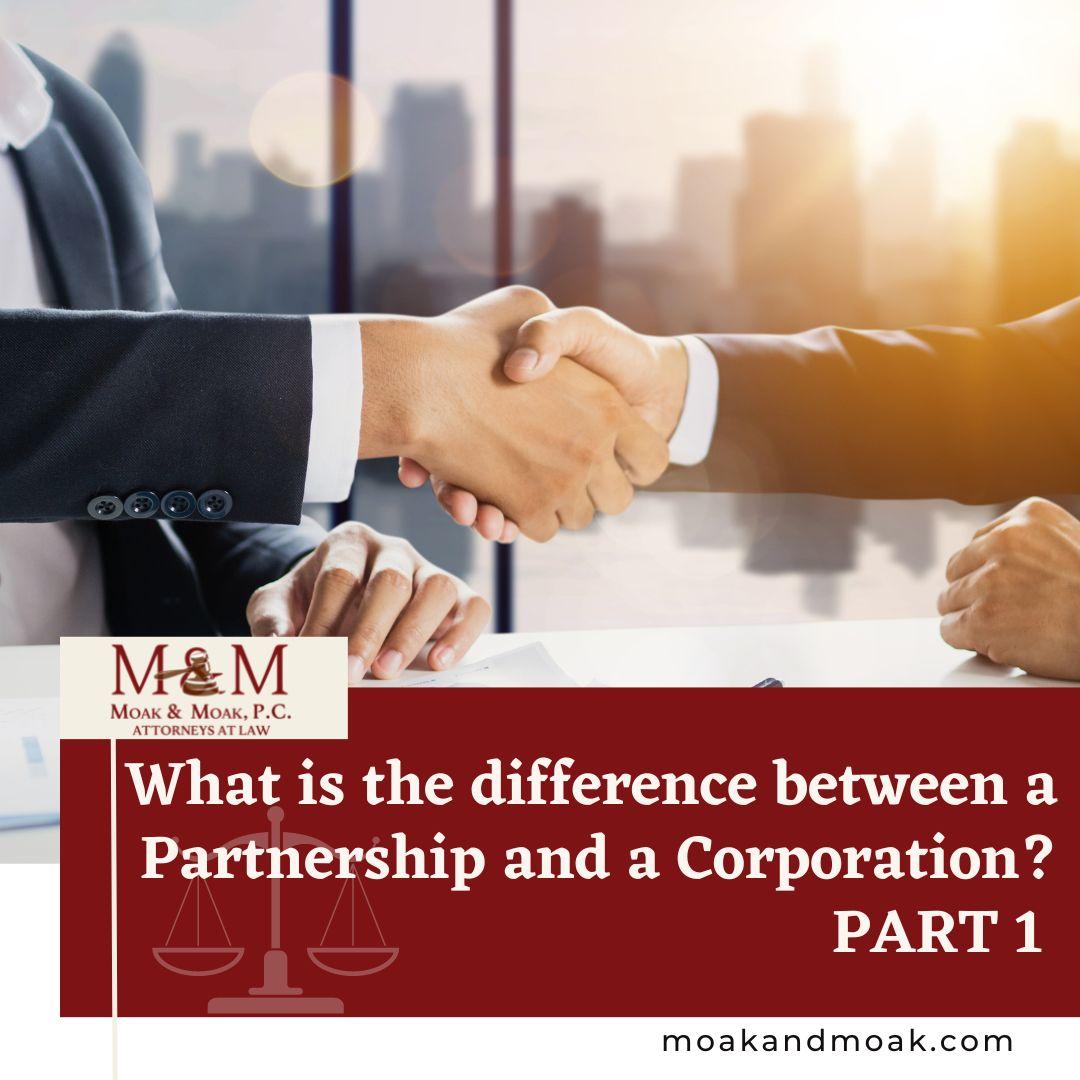Met with a client recently to discuss the differences between a partnership, corporation and Limited Liability Corporation were. I thought that might make a good topic for this column and so I will start this week with describing a partnership.
A partnership is an association of two or more persons to carry on as owners of a business for profit. What does “carry on” mean? It is the operation as an ongoing business. The partnership does not have to actually make a profit and if it does the profits do not have to be equally shared. However, the partnership must have an agreement to share profits to be valid. If there is no such agreement, then no partnership. The partners making up the partnership can be secret, silent or dormant partners. A secret partner actively participates in the partnership affairs, but his association is generally unknown. A silent partner is one whose status as a partner is generally and publicly known but does not participate in the management of partnership affairs. A dormant partner is one whose association with the partnership is generally unknown & who takes no part in the management of partnership affairs.
There is no specific format or formalities that are necessary in order to create a partnership and it may be created without any form of written instrument. While no written instrument is required you may have one. The partnership relationship is highly fiduciary in nature. The partners dealings with each other are subject to the same scrutiny and imputations as transactions with any ordinary trustee/beneficiary relationship. This requires the utmost degree of good faith and fair dealing.
Generally, a partner is not entitled to compensation (i.e., a salary) for his services to the partnership, no matter how valuable his services may be. Compensation comes instead from their share of the profits.
The general rule on liability is that every partner is an agent of the partnership for the purposes of its business and the act of every partner. All partners are jointly and severally liable for the actions and debts of the partnership. Any person not a member of the partnership may hold the partnership liable for any loss, injury or penalty resulting from where a partner commits any wrongful act or commission. Additionally, once the partnership assets are depleted in payment of its debts, the personal estates of the partners may be looked at for satisfaction of the partnership’s obligations. When one partner dies in a two-person partnership, this ends the partnership. This can leave a dilemma if the partnership owns real estate or debts. Furthermore, there are certain actions that require agreement between all of the partners to be valid. As with any rule there are exceptions to this.
Next week I will discuss and describe some of the aspects of a corporation and why that might be the choice of your business entity.
Sam A. Moak is an attorney with the Huntsville law firm of Moak & Moak, P.C. He is licensed to practice in all fields of law by the Supreme Court of Texas, is a Member of the State Bar College, and is a member of the Real Estate, Probate and Trust Law Section of the State Bar of Texas.

